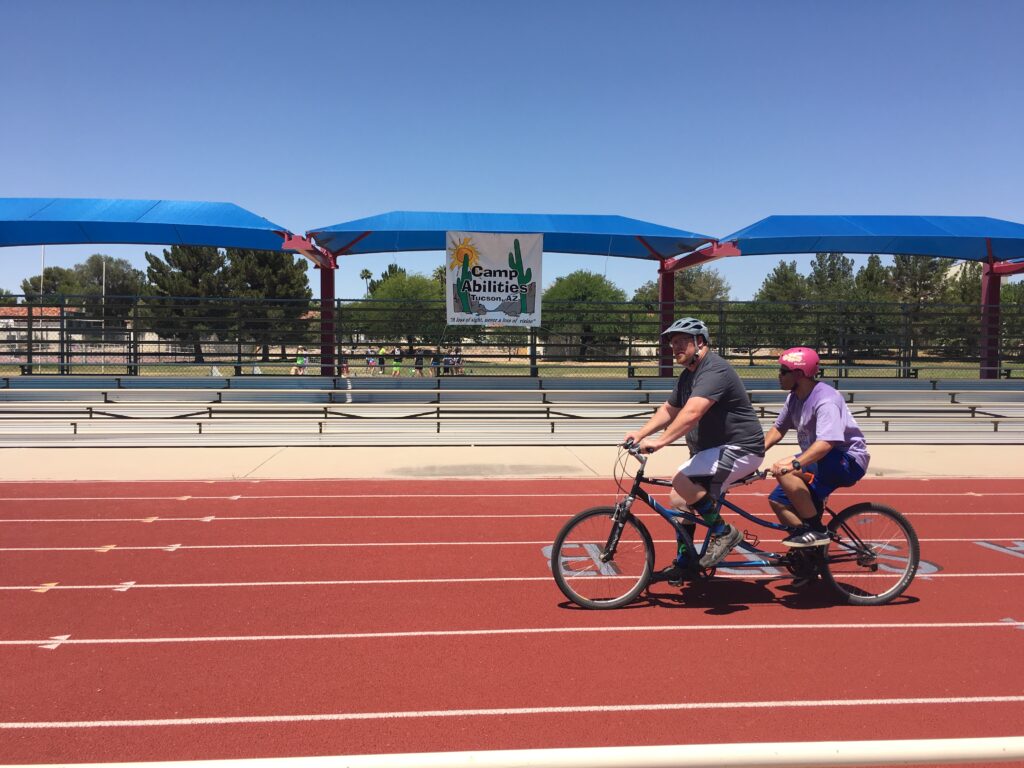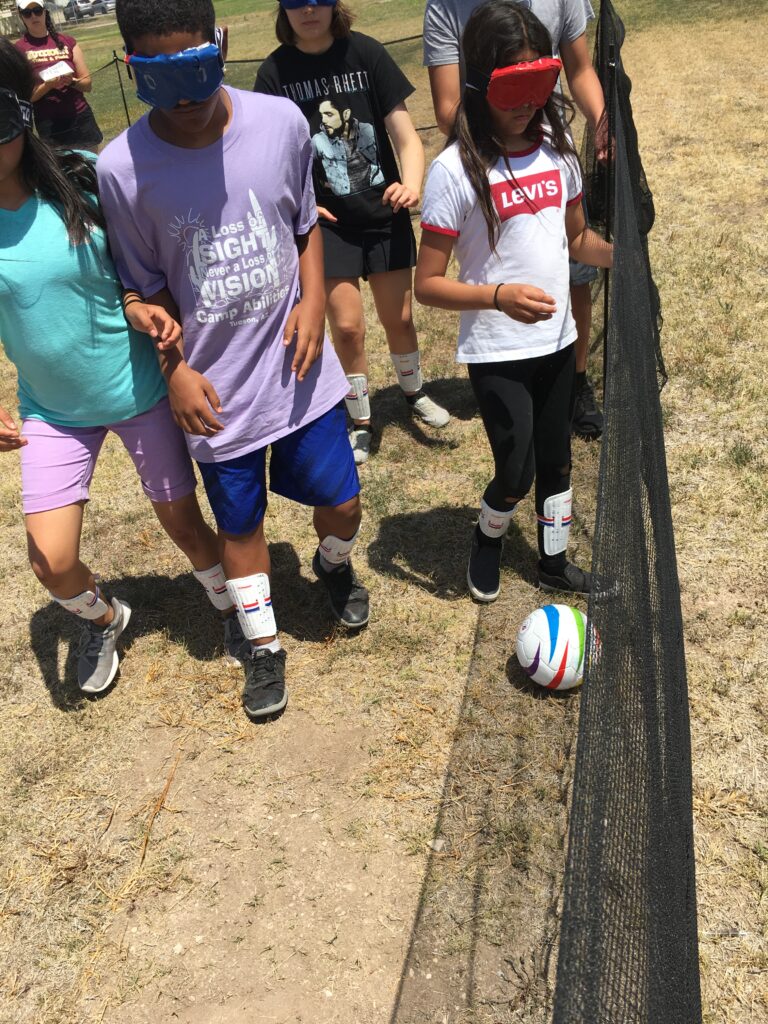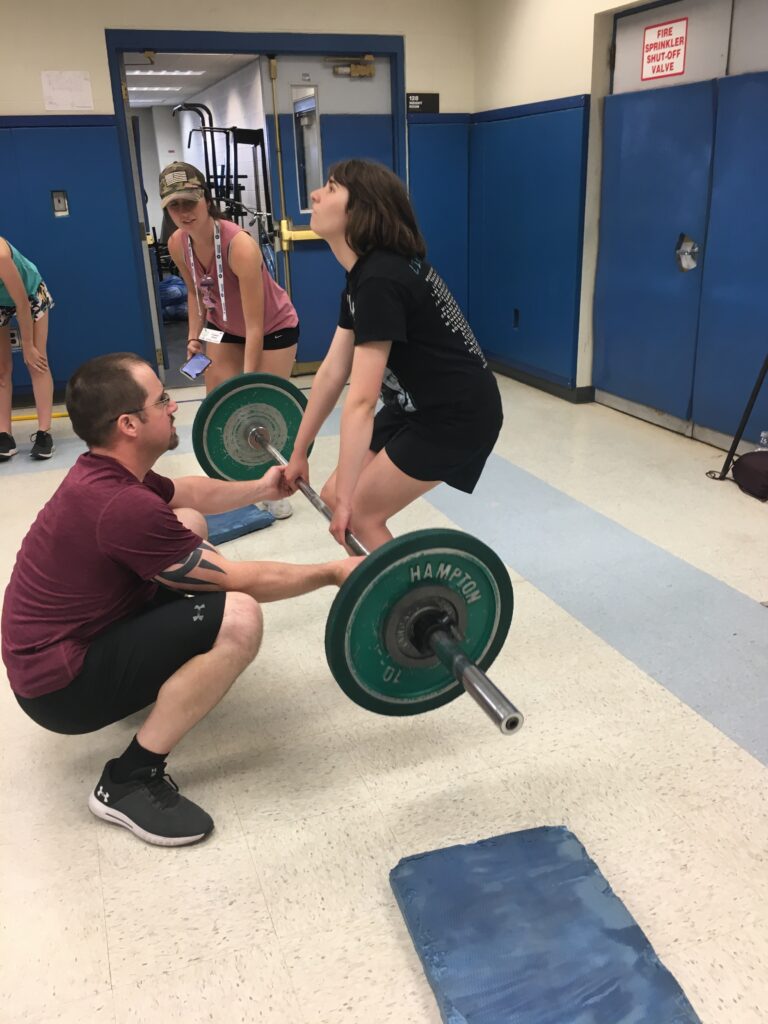This privately funded camp provides sports activities for blind and visually impaired children and young adults.
When Dr. Lauren Lieberman launched Camp Abilities in 1996 at The College at Brockport in upstate New York, Maria Lepore-Stevens had a front-row seat even though she was only about seven years old at the time.
Her mother, Monica Lepore, assisted Lieberman in establishing the privately funded camps for children and adults with multiple disabilities, including visual impairment. Maria, who is able-bodied, grew from being a tag-along to a coach and now director of several camps including Tucson.
“It was a really fun and unique way to grow up,” recalled Lepore-Stevens, currently a lecturer at Rowan University in New Jersey. “My perspective now as a practitioner in the field of visual impairment is very different. When you’re a kid, you do things differently.”
https://www.campabilitiestucson.org/
Camp Abilities Tucson is one of over 25 camps around the United States and internationally providing activities adapted to an individual’s needs along with 1-on-1 coaching. The Tucson camps serve anywhere from 25-30 participants each summer with sports like goalball, beep baseball, swimming, tandem cycling, five-a-side soccer, strength training, golf, and bowling during the week. Athletes and coaches also engage in team-building exercises that teach them to play, compete and work together as a group.

Athletes are assigned three specific sports in the morning and two in the afternoon. They’re also given the option to choose an activity that’s offered on a one-time basis during the camp. Known as Free Select, options include lacrosse and football.
Because of the intense heat in Arizona, campers rise at the crack of dawn to get an early start. Following the morning activities, they have lunch and a rest hour followed by the afternoon activities. After dinner, participants take part in a unique and fun camp-wide activity each night similar to a regular summer camp.
“One of our favorite activities in Tucson is the no-adult scavenger hunt. Our camp is located on the School for the Blind campus. Kids are sent off to do a scavenger hunt, and their counselors are not allowed to help at all. They have to follow (behind) and make sure kids don’t get hurt. I love it because it pushes the kids a little bit farther than they’re used to, and it really pushes my staff too.”
That staff consists of college students from various fields of study in physical education, special education, occupational therapy, physical therapy and vision programs. They serve as performance coaches and undergo training in visual impairment awareness. Head coaches are certified teachers and professionals in many of those same fields. Some are visually impaired athletes or teach visually impaired students.
Lepore-Stevens believes in simulating experiences of what it’s like to be blind. Coaches are trained on how to use a white cane and wear blindfolds while taking part in specific sports.
“They go through it just like the kids would. If it’s a blind sport, they’re blindfolded for it.”

One of the biggest reasons Camp Abilities Tucson has grown significantly since its inception in 2004 is the lack of a cut-off age.
“Participants who are 18 years old, once they graduate from high school, can apply to be a coach. They can stay at camp as an athlete if they don’t have the independent skills to be a coach.”
During the pandemic shutdown, Lepore-Stevens and her staff held a virtual program in place of regular camps. Participants communicated with coaches through texting, Facetime and Zoom throughout the week. Three live sessions were held each day, along with an evening activity. Kids also utilized accessible YouTube videos taught by the coaches. They even received adaptive equipment for the virtual sessions.
“We mailed adaptive equipment to each kid’s house to keep. They received auditory basketballs, volleyballs, soccer balls, exercise bands, golf clubs, and a backpack to carry all their equipment in.”
Lepore-Stevens first encountered Foreseeable Future’s founder Griffin Pinkow at Camp Abilities Brockport over five years ago. She applied for a grant before the pandemic, but the funds were deferred for use next summer. The money will go toward subsidizing the cost for kids and their families who are unable to pay.
“Camp costs about $1,000 per child. We charge $300 per child. But we don’t ever say no to a kid because they can’t pay.”
For many children, Camp Abilities is the one opportunity during the year to participate in sports like their sighted peers. The experience creates a lasting impact on them and their families. One of Lepore-Stevens’ fondest recollections was watching a father whose two kids were playing goalball. All of a sudden, he began to cry. One of the staff members came over and asked if he was OK.
“I always dreamed I would be playing T-ball with my sons,” he explained. “When both of them were blind, I had to adjust my dream. Sitting here watching my kids play goalball, this is my T-ball with my sons.”
For Lepore-Stevens, there is no greater compliment.

“He realized that dream didn’t have to go away. He could just adjust how that sport was played or what sport they played together.”
